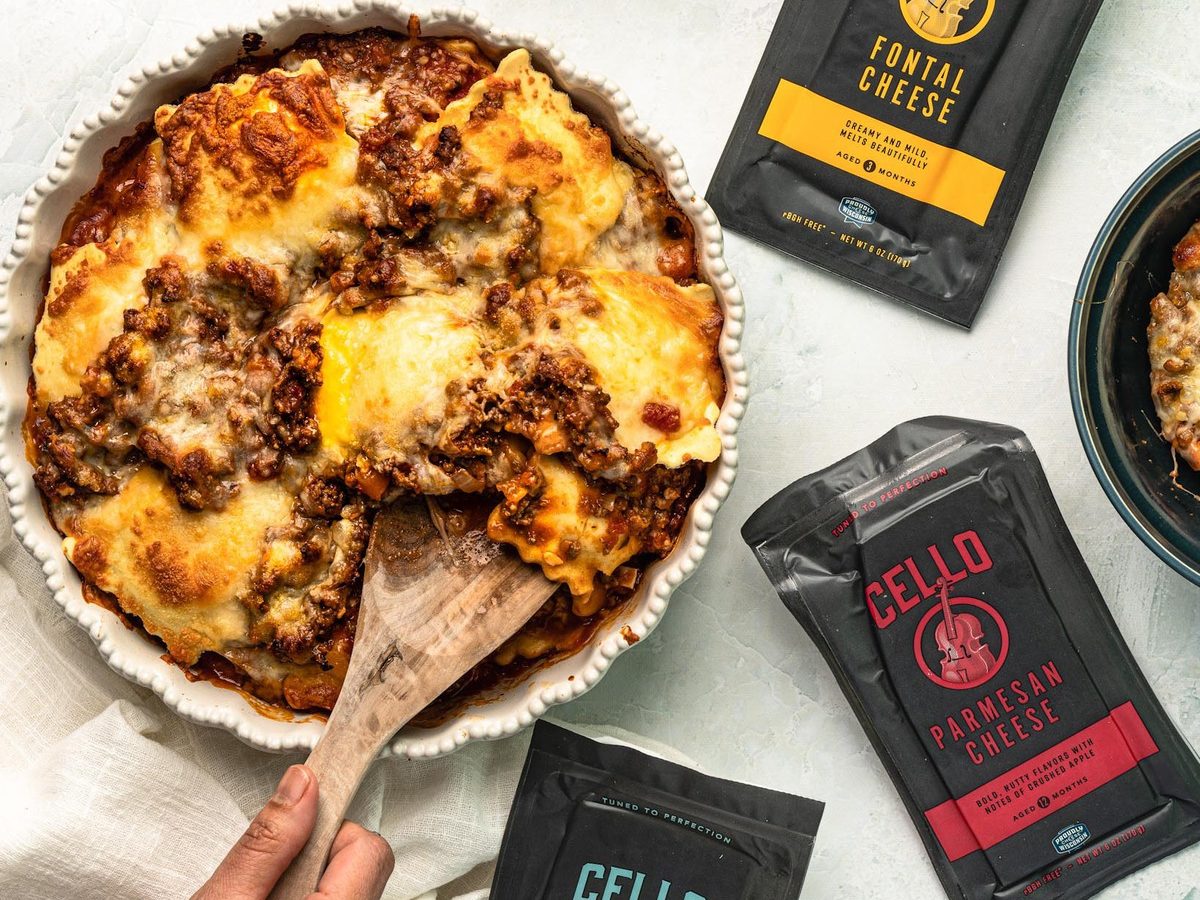It’s unlikely that the topic of pasteurized vs. unpasteurized cheese has come up during (virtual) water cooler conversation. But perhaps your cheese snob friends just came back from their trip to Italy and can’t stop raving about raw cheeses and this Scamorza we ate in Apulia! Or your pregnant best friend passed on the charcuterie board at girls’ night because she didn’t know which cheeses were safe to eat. And now, many questions about pasteurized vs. unpasteurized cheese are swirling around your head. Let us set your mind at cheese as we school you on pasteurization in the world of cheesemaking.
Is unpasteurized cheese safe?
Before we answer this question, let us briefly define pasteurization. Pasteurization is the process by which raw milk is heated to a high enough temperature in order to kill potentially disease-causing bacteria.
In the cheesemaking process, there are a couple of heat treatments available to accomplish pasteurization while still maintaining flavor. Those familiar with the cheesemaking or aging process know that not all bacteria are bad and it’s often bacteria, cultures, and enzymes that give a cheese its unique flavor or texture! In general, fromagers (the fancy French word for cheesemongers) and turophiles (a connoisseur of cheese) alike just want to enjoy quality cheese, regardless of it being pasteurized vs. unpasteurized.
According to the FDA, CDC and other US agencies, raw milk is especially unsafe when consumed by infants and young children, the elderly, and the immunocompromised. Additionally, pregnant women should not consume unpasteurized cheese or milk products.
So, if unpasteurized cheese is unsafe, it can’t be found in the US, right? Wrong! Unpasteurized cheese is made and sold in the US. In 1987, the FDA banned interstate sales of raw milk, but unpasteurized dairy products can be sold within certain states. Raw milk and cheese must be marketed and labeled as such, as well as aged at least 60 days. Why 60 days? Dangerous bacteria, like listeria, cannot survive past this period, so it’s believed the lengthened aging process removes the dangers of eating unpasteurized cheese.
If unpasteurized cheese were a new drug being marketed by a big pharma company, you’d likely hear the voiceover talent give a warning at the end of the commercial, “Unpasteurized cheeses can cause illness. Side effects may include vomiting, diarrhea, stomach cramps, fever, and flu-like symptoms. Rare and serious conditions can also develop.”
In short, unpasteurized cheese comes with some risks, and it also comes with a shorter shelf life. Raw cheeses containing live and unaged cultures continue to age and change, making them harder to mass produce and standardize.
Outside the US, unpasteurized cheese is much more common and less regulated. So as not to get a “raw” deal, stick with us to learn more about the pasteurized vs unpasteurized cheese debate.
What cheeses are not pasteurized?
As we mentioned, not all cheeses in the US are pasteurized. Generally, the following cheeses are unpasteurized:
- Brie
- Camembert
- Feta
- Gorgonzola
- Mexican cheese (queso fresco, queso blanco, etc.)
If traveling abroad, you know, like your jet-setting friends who were recently in Italy, you are more likely to encounter unpasteurized cheeses—the dairy industries outside the US are much less regulated.
However, your best bet in determining whether a cheese is pasteurized vs. unpasteurized? Read the label or ask your server at a restaurant.
Even cheddar, America’s most commonly eaten cheese, can be made with raw milk, most likely sold in a small batch at a farm or local dairy. There are also plenty of artisanal cheeses, traditionally concocted with raw milk, made with pasteurized milk for all to enjoy!
Why is pasteurized better than unpasteurized?
All Cello cheeses are pasteurized. Pasteurization is just one part of our methods and commitment to the artisanal process, which have helped us win 100 worldwide awards since 2006.
Eating pasteurized vs. unpasteurized cheese reduces the possibility of foodborne illness. It’s also entirely possible for pasteurized cheese to contain contaminants or germs that cause you to become ill, just as raw milk might.
Some people rave that European cheese made with raw milk tastes superior to cheese made with pasteurized milk. Yet, some of the world’s top cheeses are pasteurized.
No matter where you land in the great debate, our job as cheesemakers is not to tell you what to chew or choose. We believe cheese is meant to be loved by everyone who wants to eat, entertain, and enjoy it. At Cello, we aim to make cheese exciting and accessible, and help you cheese confidently!
Sign up for our monthly newsletter and stay up to date on our products, hosting tips and all things cheese. Plus, never second guess your cheese choices when you use our simple guide for creating the most delicious DIY cheese board.





